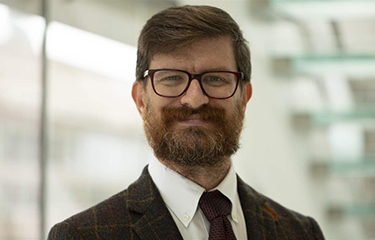The Pew Charitable Trusts’ Grantly Galland: Transshippment poses IUU risk in the North Pacific

The Seventh Annual Session of the Commission of the North Pacific Fisheries Commission (NPFC) was postponed until further notice after some members felt it would be difficult to proceed due to the invasion of Ukraine and related sanctions against Russia, as Russia was scheduled to chair the meeting.
According to The Pew Charitable Trusts Senior Officer for International Fisheries Grantly Galland, the NPFC is failing to address the critical issue of transshipment. Eighty-five percent of fish harvested in NPFC waters is transshipped, but Galland told SeafoodSource there are few rules or practices in place to track these activities. The NPFC regulates the catch of numerous species, including saury, mackerel, and groundfish. Its management overlaps with a part of the Western and Central Pacific Fisheries Commission (WCPFC, a separate a regional fisheries management organization overseeing regional tuna fisheries. The overlap, and the lack of a mechanism for sharing information between the two RFMOs, make it harder to monitor whether transshipped fish were legally caught, Galland said.
The Pew Charitable Trusts, which holds observer status with the commission, has highlighted the issue in a policy paper, "North Pacific Fisheries Commission Should Guard Against Illegally Caught Fish Entering the Supply Chain." Galland said his organization found the meeting delay problematic, and urged the NPRF to do more to combat transshipment-related illegal, unreported, and unregulated fishing (IUU).
SeafoodSource: The meeting that was to take place from 28 to 30 March was postponed. Is there any hint on when it will take place?
Galland: We’re hoping they may return to the meeting by this summer, because there is some important business for NPFC to take up this year, but there are no clues yet, and the situation that led to them postponing the meeting has not changed.
SeafoodSource: The NPFC sets the quota for saury and some other species. Are some of those quotas going to expire soon?
Galland: I’ve not heard that concern, but even so, the situation with saury is one of the top priorities for some members – in particular, Japan – because the stock remains overfished, and they are having trouble reining in the catch. That was clearly going to be one of the top priorities for this meeting – not only for Japan, but for the whole commission – to potentially take short-term action on Pacific saury, and also to set up some plans for longer-term action; even working on a harvest strategy for that species, for example. That is something that will likely provide some real incentive to try to get parties together at some point this calendar year.
Another item is transshipment management, and there was a pretty strong proposal that made it to the meeting before this happened. So, of course at Pew, we hope that if they do take up business related to saury, that there will be time to consider that proposal as well, and our position is that the proposal should just be adopted. Currently, there’s no management of transshipment of pelagic stocks, like saury. There’s some management for the deep-water stocks, and this would extend the management to those others as well.
And given the amount of transshipment activity right along the Japanese EEZ [exclusive economic zone], we believe that’s something that’s important to Japan, and is something that is potentially playing a role with Pacific saury.
SeafoodSource: Why is transshipment more problematic in areas where the oversight of multiple RFMOs overlap?
Galland: Those situations of overlap, when the overlap is for different species or different management structures, it’s just an opportunity – and we don’t have evidence or specific examples where that’s currently happening – but it’s just an opportunity for a vessel to say, “No WPFC, we were shipping saury,” or to say, “No NPFC, we were transshipping skipjack tuna.” And currently, there’s no recourse to ensure that that’s the case. In particular, in the overlap between NPFC and WPFC, where there’s no requirement for sharing data at the moment between those two RFMOs, that loophole is significant.
One of the things that’s in production at both RFMOs, is an information-sharing agreement. We had hoped that would be essentially adopted by the NPFC this year, and would therefore encourage WPFC to sign on [its] side in December. There’s still time but … we are particularly interested to make sure that all the bodies are speaking to each other.
SeafoodSource: What sort of monitoring program do you support, observers or cameras?
Galland: We believe there needs to be a regional monitoring program, so that the observers – if there are going to be human observers – are part of an international network, as opposed to being strictly a domestic program. And if there are going to be cameras, that the footage is reviewed by an international network.
We mostly think of the two as being mostly interchangeable. There are of course some things that humans can do that cameras can’t do, so we always need some human observers participating in these fisheries. But in order to get the coverage up to levels that we believe are necessary for compliance purposes, and scientific purposes, cameras are going to play a strong role there.
There’s an independent consulting company that has the contract to deal with the regional observer program for all of the WCPFC, and something similar could happen – or should happen – for NPFC as well.
SeafoodSource: How does Pew’s access as an observer in the NPFC differ from in other RFMOs in regard to transparency?
Galland: NPFC is one of the newest RFMOs, so [it] should be adopting best practices every time [it makes] a decision, because there’s a long history of activity at other places that [it] can pull from.
Our primary concern with respect to transparency is that many of the negotiations are now happening in what are called “small groups.” And the convention – the treaty text that established NPFC – highlighted very clearly that observers should be able to take part in all commission meetings and meetings of sub-bodies of the commission. And now, with these small groups being the moment when much of the negotiations are happening – and the small groups do not include observers every time – that’s a real problem, because that means a lot of their business is happening without the eye of the public or civil society.
That really came to a head in 2019, which was the last time the meeting was held in person, when there were several important items of business, and the parties could just not agree to any one of them. So they went to a “heads of del[egation]” meeting (in which RFMO’s usually discuss process or elect new heads of committees, and from which observers are traditionally excluded) … They were in heads of del for six hours and every decision for the meeting happened during that heads of del meeting. So, we missed it entirely. We don’t know what led to those decisions.
Those couple of trends are concerning, and we would like to see those reversed where possible. That’s certainly not general practice at other RFMOs and we would be raising similar concerns if it was.
Photo courtesy of The Pew Charitable Trusts





Share